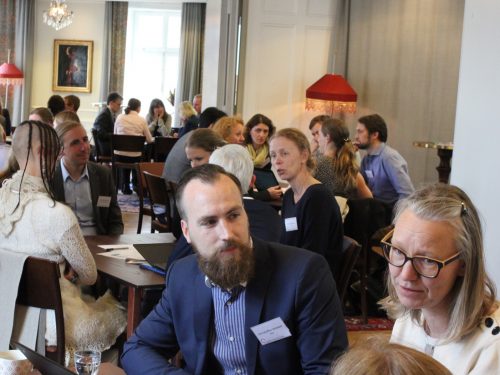LCM 2023 Summary and Highlights
The 11th International Conference on Life Cycle Management (LCM) brought together a diverse and global community, with 950 participants from 44 countries, underscoring the growing significance of LCM on a worldwide scale. Held from September 6th to 8th, 2023, in Lille, France, the LCM conference proved to be an impactful event for sustainability enthusiasts and professionals.
Key Takeaways
At LCM 2023, over 80% were first-time LCM participants, reaffirming the importance of in-person connections alongside virtual interactions. The following key takeaways from LCM 2023 have been identified and presented by the LCM conference organizers:
- LCM is now implementable at a large scale, answering the strong demand in many regions, sectors and businesses.
- Harmonize, simplify, and automatize are keywords for the coming future.
- There is a strong demand for new technologies in LCM, like AI and data science.
- Aside from some mature and fast-evolving sectors such as construction, energy production, and electronics, there are new opportunities for LCM in others like pharmaceutical, batteries, digital services …
- Sustainability incorporates much more than environmental assessments, demonstrated by the increasing consideration of social aspects and raw material criticality.
- There is still a need to increase the accuracy of Life Cycle approaches by improving methodologies and closing data gaps.
Center Contributions
The Swedish Life Cycle Center played a crucial role in shaping the LCM 2023 discussions. Notably, by hosting the session “Developing the Future Life Cycle Network,” with Anna Wikström and Debbie Steckel from the American Center for Life Cycle Assessment (ACLCA) as chairs. Maria Rydberg shared valuable insights during her presentation, “Learnings, Success Stories, and Views from Swedish Life Cycle Center.”
Additionally, our participation extended to two poster presentations. One highlighted findings from our ongoing project, “Environmental Footprint in Swedish Industry,” financed by Vinnova, through a poster featuring Torun Hammar. The other poster, titled “From Experience to a Vision of LCA Standards,” authored by Tomas Ekvall with collaborators Jennifer Davis, Viktor Hakkarainen, Kristian Jelse, Ellen Riise, Maria Rydberg, and Bengt Steen, illuminated our contributions to shaping the future of LCA standards.
Partner Contributions
The conference was further enriched by partners connected to the Center. These partners presented a diverse array of topics and research areas, reflecting their commitment to advancing LCM:
- Adeline Jerome, PhD researcher at Chalmers held a presentation titled “Comparison of LCA and circularity indicators: what method to use for what?”.
- Fayas Malik Kanchiralla, PhD researcher at Chalmers presented the poster “Integrating Life Cycle Assessment and Life Cycle Costing for Evaluating Decarbonization Pathways in Shipping”.
- Hanna Nilsson Lindén, Vice President Business and Innovation Area Material Transition at RISE, chaired the session Sustainability & circularity in business models and business ecosystems and she presented the poster “REMAnufactuRing – Key enABLEr to future business”.
- Karin Morell and Viktor Lundmark, project managers at RISE presented the poster “Development of a food biodiversity database”.
- Liv Kristensen Sanddorf, PhD researcher at Vattenfall and Technical University of Denmark held a presentation titled “Marine biodiversity impacts of offshore wind farms decommissioning”.
- Rei Palm, Senior Sustainable Energy and Climate Action Engineer at Volvo Cars held a presentation titled “Carbon footprint study of Volvo C40 Recharge – use of conclusions in development work and implications for future studies”.
- Stefano Zuin, Environmental Impact Assessment Leader at Electrolux held a presentation titled “Use of LCA in Electrolux: strategy, opportunities, and challenges”.
- Tomas Ekvall, adjunct professor at Chalmers chaired a session “Contribution of LCM to more sustainable plastics value chains” and presented two posters “From experience to a vision of LCA standards” and “Climate benefits of high-grade and low-grade plastics recycling”.
- Tomas Rydberg, Senior expert LCM at IVL chaired a session “Life cycle management in the bio-economy”.
- Torun Hammar, researcher at RISE, held a presentation titled “Life cycle assessment of a novel fibre-to-fibre solution”.
Reflections
Our personal reflections from the conference are centered around our appreciation for the diverse applications of Life Cycle Assessment (LCA) and Life Cycle Thinking (LCT) across various sectors and products/services. We found the wide array of goals and designs presented by different networks and centers to be fascinating.
We believe that the conference’s comprehensive program was the driving force behind its significant growth, evident through the increased number of participants compared to previous editions.
Additionally, the positive atmosphere, excellent networking opportunities, and rewarding conversations during the LCM conference left a lasting impression. These experiences have fueled our motivation to enthusiastically anticipate and participate in upcoming conferences in the series.

